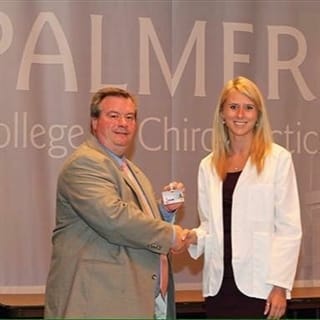Badger State requires higher score on national exam than most other states
Editor’s Note: On April 16, 2018, Gov. Scott Walker signed into law licensure reforms that allow aspiring chiropractors who pass the national board exam to secure a license in Wisconsin without having to attain an arbitrarily higher score set by the state.
Mikhaila Weister graduated from chiropractic school in 2016, passed the national chiropractor board exam and is eager to begin practicing her profession in her hometown of Appleton. But due to the arbitrary nature of occupational licensing regulations, Weister — and many like her — cannot practice in Wisconsin.
The obstacle is a state licensing rule that requires a dramatically higher score on the national exam than almost every other state. Under national chiropractic standards, a score of 375 points on the third and fourth portions of the exam would earn Weister the necessary certification to practice. Wisconsin, however, requires scores of 438 and 475 on these sections.
As a result, Weister and numerous other aspiring chiropractors must choose between retaking the board exam — a time-consuming and expensive process — or practicing in another state.
Weister opted to retake the exam. She lives with her significant other in Appleton, and they are expecting their first child (a girl) in February. Like many Americans, she wants to raise her child near family in the community where she grew up.
So, Weister retook the third part of the exam (at a cost of $660 per exam) three times, each time exceeding the score necessary to pass and practice in 47 other states but falling short of Wisconsin’s stratospheric requirements. She retook the fourth part (at a cost of $1,500 per exam) twice, meeting the Wisconsin requirement on the last attempt. In the meantime, she’s had to defer payments on her $230,000 student loans, adding to her overall debt load.
Weister’s experience is not unique. At a recent hearing conducted by the Wisconsin Assembly Committee on Regulatory Licensing Reform, chiropractors, recent graduates of chiropractic schools and even the executive vice president of the National Board of Chiropractic Examiners testified that Wisconsin’s standard fences people out of the profession while doing nothing to improve public health or safety.
This is typical of occupational licensing regulations. A system originally established to protect consumers has mushroomed in recent years, with regulations evolving into something of a protectionist racket, keeping out newcomers, inflating costs, decreasing competition and stifling innovation. Today, the Wisconsin Department of Safety and Professional Services licenses hundreds of occupations.
The result is real-world hardship for people like Weister who have secured their degrees, attained exam scores high enough to practice in almost every state and simply want to practice their profession in the Badger State. Arbitrary requirements for other professional licenses continue to thwart the dreams and livelihoods of countless others.
Policy-makers are beginning to take notice. A bill introduced by state Rep. Dale Kooyenga (R-Brookfield) would bring Wisconsin’s requirements in line with national standards. Other licensing reforms were recently signed into law, reducing the regulatory burden on cosmetologists, barbers, manicurists and those in similar professions.
But the overall licensing regime in Wisconsin deserves more scrutiny, impartiality and simplicity. As Mikhaila Weister discovered, these policies too often set up roadblocks to opportunity and prosperity for the benefit of a select few.
Michael Jahr is vice president of outreach and special projects at the Badger Institute.





